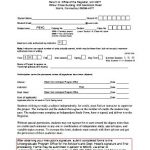Diversity within the legal workplace: exclusive interview using the co-chair of ladies in ip
- Agile working atmosphere answer to retaining female talent and advantageous to any or all
- Business Situation for Diversity presents data around the profitability of the diverse workplace
- Support necessary to allow lawyers to speak to one another about work obstacles

When Joanna Conway had her first child, she was the very first part of the IP team at Norton Rose Fulbright to do this. After taking maternity leave, Conway came back to operate 72 hours per week, which increased to four days with one working at home. “That broke ground,” Conway states. “All of this was new after i made it happen, however i consider the women now getting children and it is common to complete.” However, you may still find challenges in the market, which Conway, that has just gone to live in Kemp Little, tries to tackle as co-chair of ladies in IP.
A part of IP Inclusive, Women in IP offers networking occasions over the United kingdom, raising understanding of the problems women face within the IP workplace. Patent attorney Andrea Brewster founded IP Inclusive in 2015 and Conway leaped in the chance to participate the mission, co-chairing the ladies in IP group alongside Susi Fish, someone at Boult Wade Tennant.
“I was really conscious that I had been inside a fortunate position at Norton Rose. They supported me through working part-time, agilely, abroad, and doing secondments. But others weren’t such fortunate positions or possibly were at businesses that weren’t as big or in a position to accommodate everything,” Conway explains. She therefore relished the opportunity to lead Women in IP: “We attempt to spread this message that this is one way the planet goes. It should not be seen sceptically, it’s the best way to retain your female talent.”
Obviously, the mission is all about not only retention. Tackling the contrasts in career progression is another priority from the group. When they constitute roughly 50% of individuals entering law, Conway states, “the problem women face gets right through to the senior levels”.

When Joanna Conway had her first child, she was the very first part of the IP team at Norton Rose Fulbright to do this. After taking maternity leave, Conway came back to operate 72 hours per week, which increased to four days with one working at home. “That broke ground,” Conway states. “All of this was new after i made it happen, however i consider the women now getting children and it is common to complete.” However, you may still find challenges in the market, which Conway, that has just gone to live in Kemp Little, tries to tackle as co-chair of ladies in IP.
A part of IP Inclusive, Women in IP offers networking occasions over the United kingdom, raising understanding of the problems women face within the IP workplace. Patent attorney Andrea Brewster founded IP Inclusive in 2015 and Conway leaped in the chance to participate the mission, co-chairing the ladies in IP group alongside Susi Fish, someone at Boult Wade Tennant.
“I was really conscious that I had been inside a fortunate position at Norton Rose. They supported me through working part-time, agilely, abroad, and doing secondments. But others weren’t such fortunate positions or possibly were at businesses that weren’t as big or in a position to accommodate everything,” Conway explains. She therefore relished the opportunity to lead Women in IP: “We attempt to spread this message that this is one way the planet goes. It should not be seen sceptically, it’s the best way to retain your female talent.”
Obviously, the mission is all about not only retention. Tackling the contrasts in career progression is another priority from the group. When they constitute roughly 50% of individuals entering law, Conway states, “the problem women face gets right through to the senior levels”.
As a result, talking with management is essential along with a new initiative may be the Business Situation for Diversity. Women in IP hold workshops and participates in big law occasions, like the CITMA fall conference, where they present the details. “There’s a tough group of data that supports the truth that if you are an assorted organisation, you’ll be more lucrative.”
Although quarrelling for diversity from the profitability perspective deemphasises the moral onus on such changes, Conway believes it’s essential for obtaining the right people’s attention in senior management. “It’s not too they’re bad people, it’s exactly that they’re in the industry and want to pay attention to why is sense for that business.”

One factor which makes sense, but needs a mindset change, is embracing agile working schedules. This could allow women and men to keep their professional responsibilities without having to sacrifice a thriving family existence, and crucially doesn’t mean a loss of revenue of productivity. “It’s a higher-pressure career. Even if I had been working less than 5 days per week, I’d continually be working at the time off. However it is at my control.”
Lawyers beholden to clients won’ doubt recognise that, if your client needs yourself on a Friday, there’s little that you can do to alter that. However, having a more agile workplace, family responsibilities could be more freely planned around. Work needn’t be sacrificed, and openness with clients could be a positive – Conway noting that general counsel customers are also increasingly prepared to be upfront about requiring to maneuver a phone call because of family priorities.
They are problems that Conway believes women and men both deal with. “The indisputable fact that a guy needs to be at work whatsoever hrs to aid his family but never discover their whereabouts is simply terrible,” she comments. In her own teams, she’s observed that when agile working coverage is set up, the boys will also be taking on the chance to balance the work they do schedule with family existence. Males are equally asked to join Women in IP: “We’re massively helped because millennials make childcare stop being a gender issue.”
It’s also answer to recognising the way the workplace is aimed at men. “You’ve reached recognise you’re inside a man and woman’s world, not only a man’s one,” she notes – adding that it is essential to facilitate for various personality types when allocating work projects. “If you announce a task inside a meeting, the ladies might be more reticent about coming forward,” Conway observes. However, should you not accommodate for your “you’re not likely to always obtain the best person to do the job, you may just get the one who shouts the loudest”.
As noted, female lawyer intake over the United kingdom is comparatively good. However, there’s still a dearth of Black, Asian, and Minority Ethnic (BAME) lawyers entering the profession. The issue could be a catch-22: “Until there’s about 12% of individuals like you in which you work, you aren’t likely to feel at ease. Regrettably, particularly with BAME people, it’s very difficult to reach that 12% mark.”
To combat this, IP Inclusive launched Careers in Ideas. The outreach campaign aims to improve the IP talent pool by supplying educational information in school and college levels for individuals potentially thinking about an IP career. Conway also recommends blind recruitment strategies: “Make sure you aren’t discriminating against people not always as if you due to an unconscious bias.”
Searching forward, Conway has wishes to bring a mentor plan to Women in IP. “You visit occasions and everybody acknowledges the significance of getting a mentor or perhaps a sponsor, yet whenever you ask people, most do not have one or understand how to acquire one.” She states the goal is to setup mentorship categories of two senior people working alongside four people at other stages. The duo of senior mentors helps to ensure that senior people then possess the possibilities to locate mentors on their own.
There remains much to become done but, positively, Conway has witnessed progress within the field since she first became a member of: “The proven fact that we’re all acknowledging it now and there is a pressure to get rid of it really is positive.” To that particular finish, Conway hopes that eventually the ladies in IP group won’t be required to show people the requirement for a diversity or inclusion policy. It’ll you need to be general, good sense understanding.
There’ll always be a spot for the ladies in IP group though. “What we’ll also have may be the support. Just having the ability to speak with others outdoors of the organisation for that items you might face.” For your, occasions such as the Connected Bubbles networking occasions are crucial.
Stumble upon eight different venues over the United kingdom, Connected Bubbles saw Women in IP coordinate networking and discussion groups communicating all via joint WhatsApp groups. Varying from your Allen & Overy located event in Belfast, for an Appleyard Lees event in Leeds: “We had about 150 people across the nation. It had been nice to supply support for ladies outdoors based in london.”
With successes such as this, Conway believes the organisation comes with an excellent chance at engaging lawyers across the nation. “We actually want to engage the entire community, men incorporated. It’s that constant fight between being viewed as rampant feminists inside a bad way and becoming the content across this is everybody’s problem.”
This interview belongs to WTR’s “Diversity within the Legal Workplace” series. Within this series we talk with lawyers leading the charge to produce more inclusive environments for groups most underrepresented in law. In the past article WTR spoke to Jim Ford, global chair of Allen & Overy’s Gay and lesbian+ Network, and Anand Sharma, Finnegan’s first managing partner of colour.
Resourse: https://worldtrademarkreview.com/law-firms/







